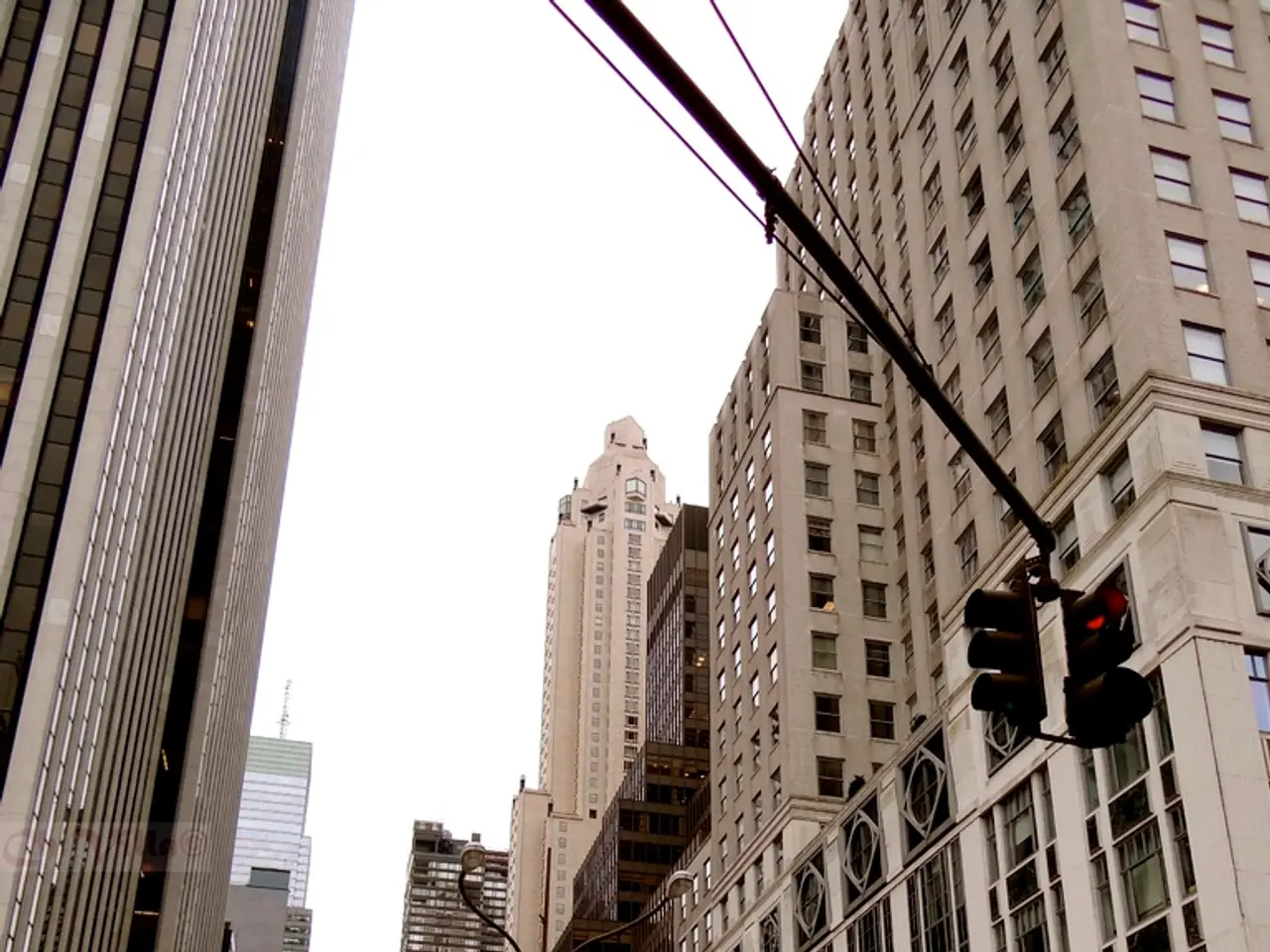North Rhine-Westphalia Requires a Unique Initiative to Counteract Hidden Threats
In an attempt to address the growing concern of public safety and the perceived sense of insecurity in residential areas, city centers, and neighborhoods, a new approach is being considered - the Dutch WhatsApp neighbourhood prevention model and fault reporting systems.
The concept, already successfully implemented in the Netherlands, involves residents organising themselves into messenger groups and reporting suspicious situations or issues in their locality. This grassroots approach has shown promising results, with residents acting as informal eyes and ears, increasing natural surveillance and social cohesion.
One of the most significant success stories comes from Hesse, where the central "fault reporter" established in an online portal has received over 8,100 reports in its first year, with more than 4,900 quickly resolved. This proactive approach could potentially be suitable for preventive action to enhance the sense of security and social cohesion in neighbourhoods across the globe.
The issue of insecurity is not just a matter of individual concern. It affects the quality of life, with many people, particularly women, avoiding certain places in the evening or taking longer routes due to fear. These anxiety spaces, often dark streets, labyrinthine underground garages, and empty plazas, are particularly fear-inducing at night, especially in the winter. City planning often lacks sensitivity to this sense of security, potentially disadvantaging and restricting the freedom of women.
Strategies to improve the sense of security in public spaces generally involve a combination of environmental design, technology, maintenance, and community engagement. Fault reporting systems and community involvement models like the Dutch WhatsApp neighbourhood prevention groups are proving to be effective examples.
Fault reporters are tools that allow community members to report issues such as vandalism, broken lighting, graffiti, or unsafe conditions in public spaces promptly. Timely maintenance following such reports is critical to counter the broken windows theory, which states that visible signs of neglect invite further crime and antisocial behavior.
The Dutch WhatsApp neighbourhood prevention groups are grassroots community networks where residents communicate in real-time about suspicious activities, safety concerns, or emergencies. These groups reinforce territorial reinforcement by fostering a shared sense of responsibility for local safety, making offenders less likely to act when community vigilance is high.
In addition to fault reporting systems and community involvement models, environmental and technological measures play a crucial role in enhancing security. Lighting upgrades, CCTV surveillance, maintenance programs, and hostile vehicle mitigation measures can significantly improve visibility, deter offenders, and create safer urban spaces.
By combining fault reporters that facilitate rapid issue resolution with community-based communication models like the Dutch WhatsApp groups, municipalities can effectively increase the sense of security in public areas. These strategies work best when integrated with environmental design improvements and ongoing maintenance programs to create safer, more welcoming urban spaces.
In conclusion, the Dutch WhatsApp neighbourhood prevention model and fault reporting systems offer a promising approach to addressing the issue of insecurity in public spaces. By empowering communities to take an active role in maintaining their local safety and engaging in open dialogue with municipal authorities, we can work towards creating safer, more inclusive cities for everyone.
- The success stories from the Dutch WhatsApp neighbourhood prevention model highlight its potential for addressing not only crime and justice, but also enhancing health-and-wellness and mental health, as residents' increased sense of safety could contribute to overall well-being.
- In the realm of women's health, such models could help make public spaces more accessible and safe, reducing the anxiety that many women feel when navigating certain areas, especially at night.
- Beyond the Netherlands, this approach could be applied to general news topics, with cities around the world considering similar preventive measures to improve safety and social cohesion in their communities.
- Moreover, the Dutch WhatsApp neighbourhood prevention groups, combined with fault reporting systems, could be integral parts of future fitness-and-exercise initiatives, fostering a sense of community and encouraging residents to be more active in advocating for their health and the health of their neighbourhoods.




